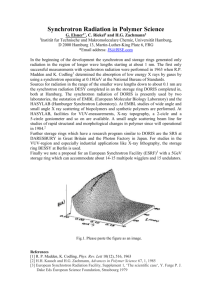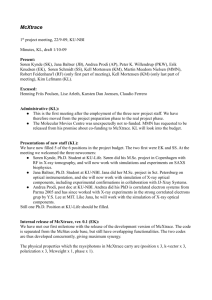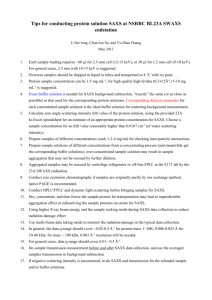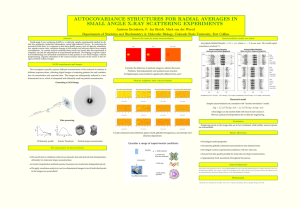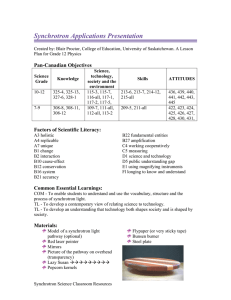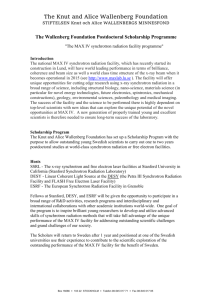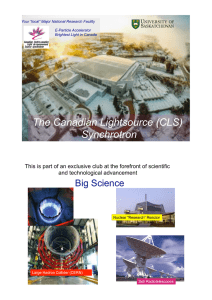Project acronym:
advertisement
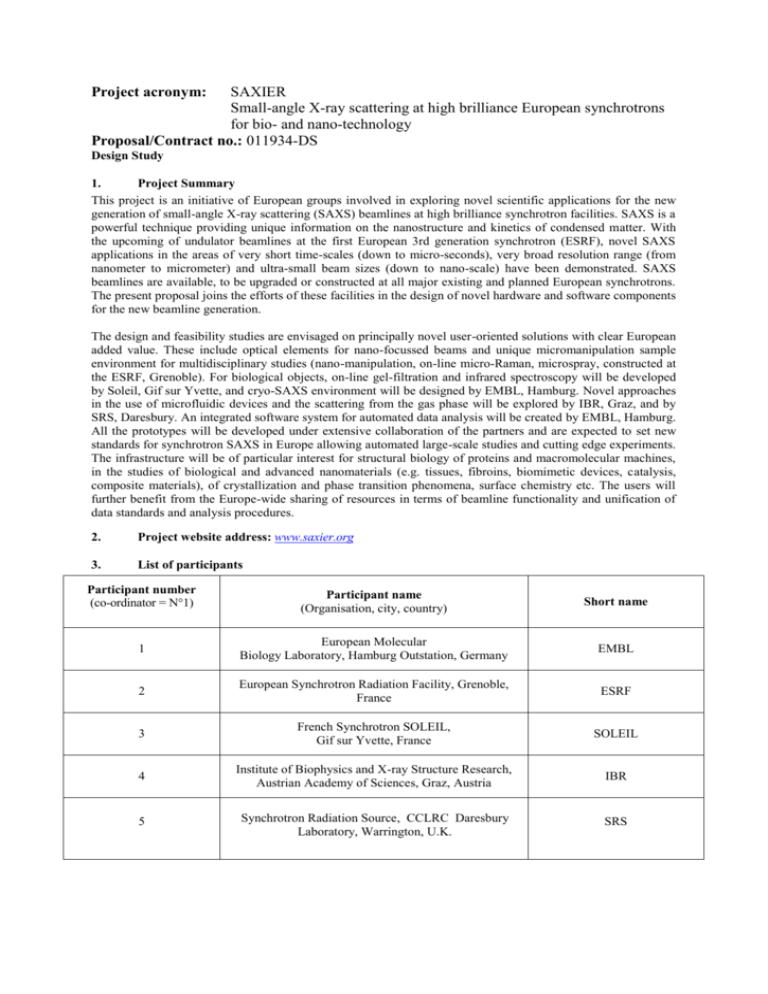
Project acronym: SAXIER Small-angle X-ray scattering at high brilliance European synchrotrons for bio- and nano-technology Proposal/Contract no.: 011934-DS Design Study 1. Project Summary This project is an initiative of European groups involved in exploring novel scientific applications for the new generation of small-angle X-ray scattering (SAXS) beamlines at high brilliance synchrotron facilities. SAXS is a powerful technique providing unique information on the nanostructure and kinetics of condensed matter. With the upcoming of undulator beamlines at the first European 3rd generation synchrotron (ESRF), novel SAXS applications in the areas of very short time-scales (down to micro-seconds), very broad resolution range (from nanometer to micrometer) and ultra-small beam sizes (down to nano-scale) have been demonstrated. SAXS beamlines are available, to be upgraded or constructed at all major existing and planned European synchrotrons. The present proposal joins the efforts of these facilities in the design of novel hardware and software components for the new beamline generation. The design and feasibility studies are envisaged on principally novel user-oriented solutions with clear European added value. These include optical elements for nano-focussed beams and unique micromanipulation sample environment for multidisciplinary studies (nano-manipulation, on-line micro-Raman, microspray, constructed at the ESRF, Grenoble). For biological objects, on-line gel-filtration and infrared spectroscopy will be developed by Soleil, Gif sur Yvette, and cryo-SAXS environment will be designed by EMBL, Hamburg. Novel approaches in the use of microfluidic devices and the scattering from the gas phase will be explored by IBR, Graz, and by SRS, Daresbury. An integrated software system for automated data analysis will be created by EMBL, Hamburg. All the prototypes will be developed under extensive collaboration of the partners and are expected to set new standards for synchrotron SAXS in Europe allowing automated large-scale studies and cutting edge experiments. The infrastructure will be of particular interest for structural biology of proteins and macromolecular machines, in the studies of biological and advanced nanomaterials (e.g. tissues, fibroins, biomimetic devices, catalysis, composite materials), of crystallization and phase transition phenomena, surface chemistry etc. The users will further benefit from the Europe-wide sharing of resources in terms of beamline functionality and unification of data standards and analysis procedures. 2. Project website address: www.saxier.org 3. List of participants Participant number (co-ordinator = N°1) Participant name (Organisation, city, country) Short name 1 European Molecular Biology Laboratory, Hamburg Outstation, Germany EMBL 2 European Synchrotron Radiation Facility, Grenoble, France ESRF 3 French Synchrotron SOLEIL, Gif sur Yvette, France SOLEIL 4 Institute of Biophysics and X-ray Structure Research, Austrian Academy of Sciences, Graz, Austria IBR 5 Synchrotron Radiation Source, CCLRC Daresbury Laboratory, Warrington, U.K. SRS


